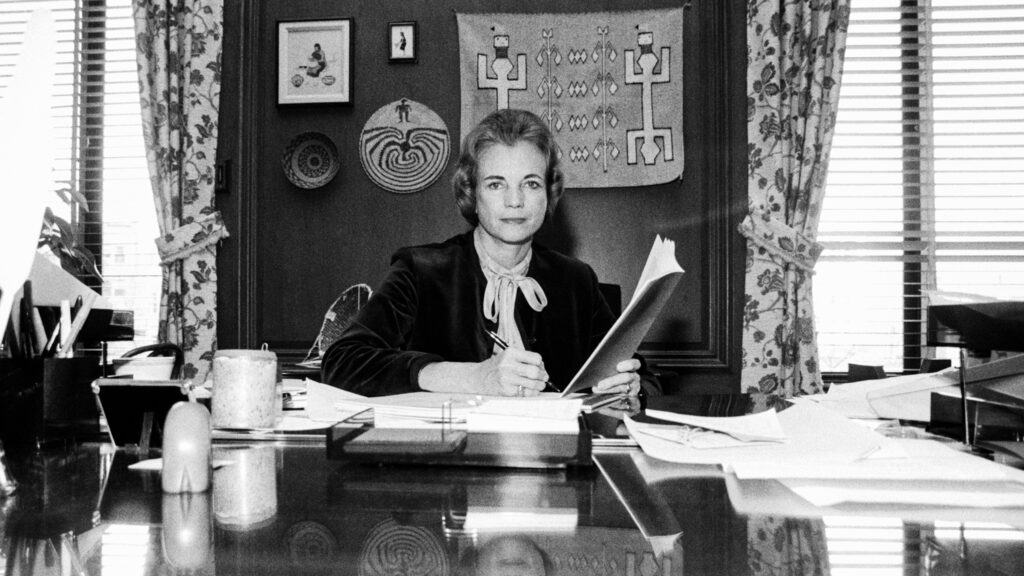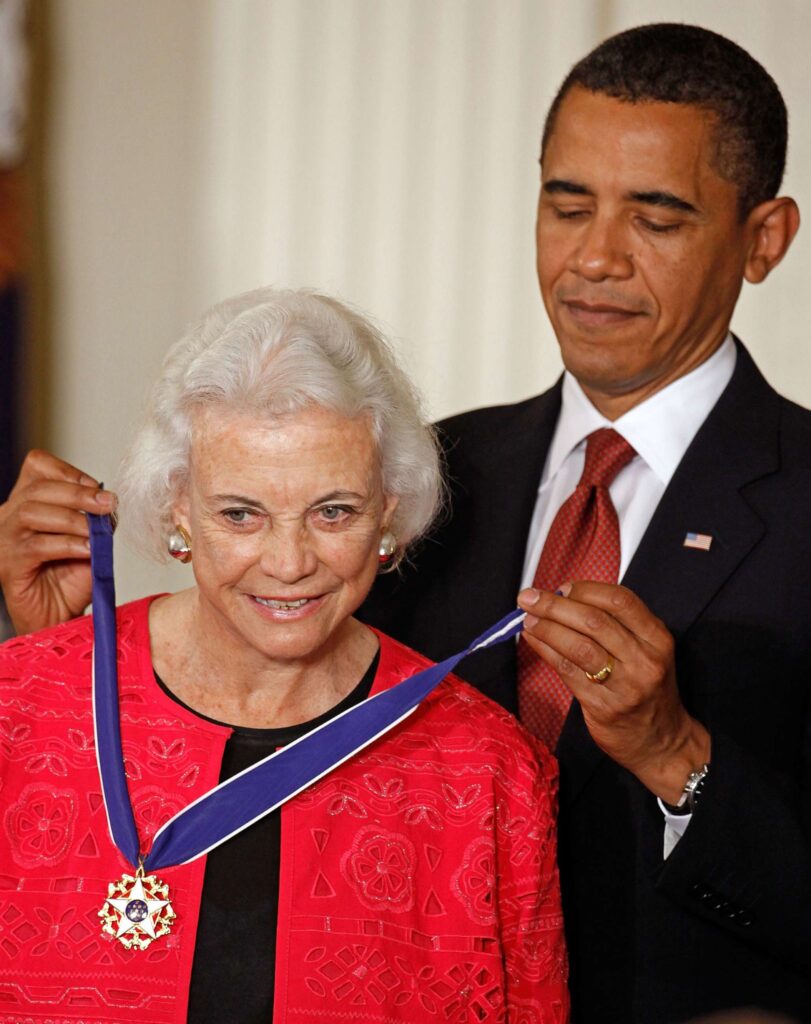Sandra Day O’Connor, the first woman to serve on the Supreme Court and the justice who held the court’s center for more than a generation, passed away on December 1, 2023, at the age of 93. Her cause of death was complications related to advanced dementia and a respiratory illness. She was a trailblazer and her legacy will continue to inspire many. May she rest in peace. 🕊️.
Sandra Day O’Connor Early Life and Education
Sandra Day O’Connor was born on March 26, 1930, in El Paso, Texas, and raised on a cattle ranch near Duncan, Arizona. Growing up in a rural environment instilled in her a strong work ethic and resilience. She attended Stanford University, where she graduated near the top of her class with a degree in economics. Despite facing gender bias in academia, she excelled and continued her studies at Stanford Law School, where she earned her law degree in 1952, another significant milestone given the limited opportunities for women in law at the time.

Trailblazing Legal Career
After completing her education, O’Connor faced challenges securing employment due to gender discrimination prevalent in the legal profession. She eventually found work as a deputy county attorney in California before moving to Arizona, where she embarked on a diverse legal career. O’Connor served as an assistant attorney general and later became the first female majority leader in any state senate while in Arizona.
Appointment to the Supreme Court
In 1981, President Ronald Reagan nominated Sandra Day O’Connor to the Supreme Court, marking a pivotal moment in American history. On September 25, 1981, she was confirmed by the Senate with a unanimous vote, making her the first female justice to serve on the highest court in the land. This appointment shattered a longstanding gender barrier and set a groundbreaking precedent for women in the legal profession.

Landmark Cases and Contributions
During her tenure on the Supreme Court, which spanned from 1981 to 2006, Justice O’Connor played a pivotal role in several landmark cases. Notably, in cases such as Planned Parenthood v. Casey (1992), she upheld a woman’s right to abortion while introducing the “undue burden” standard. Her opinions often reflected a moderate and pragmatic approach, influencing crucial decisions on affirmative action, religious freedom, and the separation of powers.
Presidential Medal of Freedom
Sandra Day O’Connor was awarded the Presidential Medal of Freedom in 2009 by President Barack Obama. The Presidential Medal of Freedom is the highest civilian award of the United States, recognizing people who have made significant contributions to the national interests of the country, world peace, or cultural or other significant public or private endeavors. Justice O’Connor’s groundbreaking career and service to the nation made her a deserving recipient of this prestigious honor

Legacy and Impact
Sandra Day O’Connor’s legacy extends far beyond her time on the bench. Her influence reshaped the perception of women in law and inspired future generations of female lawyers and justices. She set a benchmark for inclusivity and fairness, emphasizing the importance of a diverse judiciary in ensuring a more equitable legal system.
Personal Traits and Influence
Known for her intelligence, pragmatism, and dedication to public service, O’Connor’s personal traits were integral to her success. Her ability to navigate complex legal issues while maintaining a commitment to fairness and justice earned her respect from colleagues across the ideological spectrum.
Balancing Act: Family and Career
Throughout her career, O’Connor navigated the delicate balance between a thriving career and a fulfilling family life. Her dedication to both spheres demonstrated the possibilities of achieving professional success while prioritizing personal values and relationships.
Life After the Supreme Court
Upon retiring from the Supreme Court in 2006, O’Connor continued to be active in promoting civic education and judicial independence. She founded iCivics, an organization focused on educating young people about civics and democracy, leaving a lasting impact on civic education in the United States.

O’Connor’s Philosophical Stance
Her judicial philosophy often emphasized a pragmatic approach, seeking consensus and balance in her decisions. O’Connor’s commitment to upholding the Constitution while considering real-world implications made her a key swing vote on numerous critical cases.
Continuing Influence and Relevance
Even after her retirement, Sandra Day O’Connor’s decisions and approach to jurisprudence continue to influence legal discourse and shape the evolution of American law. Her legacy remains a touchstone for debates on gender equality, diversity in the judiciary, and the role of a justice in society.
Addressing Gender Bias in Law
Throughout her career, O’Connor actively addressed gender disparities in law and advocated for equal opportunities for women in the legal profession. Her presence on the Court and her decisions contributed significantly to advancing gender equality.
The O’Connor Effect in Modern Society
Sandra Day O’Connor’s impact transcends the legal realm. Her journey serves as a testament to the power of determination and resilience in breaking barriers, inspiring individuals to challenge norms and strive for equality across various fields beyond law.
Her Role in American History
Sandra Day O’Connor’s historic appointment and consequential decisions firmly place her within the annals of American history. She occupies a pivotal position in the narrative of gender equality, judicial independence, and the evolving role of women in society.
Conclusion
Sandra Day O’Connor’s life and achievements stand as a testament to perseverance, intelligence, and dedication to justice. Her trailblazing journey not only reshaped the American judiciary but also inspired countless individuals, setting benchmarks for inclusivity, fairness, and the pursuit of equality.
Also Read ….Shane MacGowan: The Iconic Irish Music Soul., Passsed Away on Novemeber 30,2023